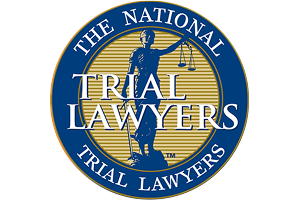- Free Consultation 24/7: (773) 908-9811 Tap Here To Call Us
3 Popular Assault Myths, Debunked
There’s a divide between the common perception of assault and its definition under Illinois criminal law. As a result, some defendants are surprised to find that their actions have resulted in an assault charge and are unsure what, if anything, they can do to avoid a conviction.
In order to clarify this often confusing charge, I’m going to discuss three of the most common assault myths that I encounter as a Chicago assault lawyer.
Myth 1: Physical Contact Must Take Place for an Assault Charge

In reality, no physical contact needs to take place for an individual to be charged with assault. That’s because Illinois state law draws a distinction between assault and battery. Our state defines assault as “conduct which places another in reasonable apprehension of a battery,” meaning that you could be charged with this crime if, say, you walked towards another person swinging a baseball bat menacingly, even if you never intended to hit them. Intention is not taken into consideration with assault charges; you can be charged as long as the alleged victim had reason to fear an attack.
Battery, meanwhile, involves causing physical harm to another person. Defendants are sometimes charged with both assault and battery if the prosecutor can prove that the defendant’s actions caused the victim injury.
Myth 2: Assault Is Always Considered a Felony Crime in Illinois
While an assault charge should be taken very seriously, it generally does not carry penalties as harsh as those for battery, because the defendant did not cause physical harm to their victim. Assault is typically classified as a Class C misdemeanor in Illinois, which may result in up to 30 days of jail time and a fine up to $1,500 if the defendant is convicted. In some cases, a good defense attorney may also be able to convince the court to issue an alternate sentence of community service instead of jail time and fines.
The only type of situation where assault can be classified as a felony is when the defendant is charged with aggravated assault. An assault is said to be aggravated when it is likely that the victim would have suffered serious harm if the defendant followed through with their attack. For example, if you cornered someone and pointed a gun at them, you would most likely be charged with a Class 3 Felony, which can result in 2-5 years in prison if you’re convicted.
Myth 3: If You’ve Committed an Assault, There’s No Good Defense

You might think that if the prosecutor has concrete evidence that you committed an act of assault, there’s no way to beat the charge. However, there are several situations where your actions may be considered reasonable and should not result in a criminal conviction.
You may be able to argue that you acted in self-defense, to protect others, or to protect your property. In order to use this line of argument in your defense, you and your attorney will need to be able to prove that the alleged victim actually threatened to harm you, a loved one, or valuable property, and that you had reason to fear harm from this person. This defense will be strongest if you can also prove that you took no part in provoking the alleged victim, and that there was no reasonable way to escape the situation.
Your Chicago criminal defense attorney may also be able to find other mitigating circumstances that will reduce the charge against you or even get the charge dropped altogether. The important thing to remember is that your case is not a lost cause, and you have the right to present a rigorous defense.
About the Author: Andrew M. Weisberg is a former felony prosecutor who now serves as a defense attorney in the greater Chicago area for the Law Offices of Andrew Weisberg. He has extensive experience in handling all types of criminal cases, from sex offenses and violent crimes to theft-related crimes and traffic violations.




















